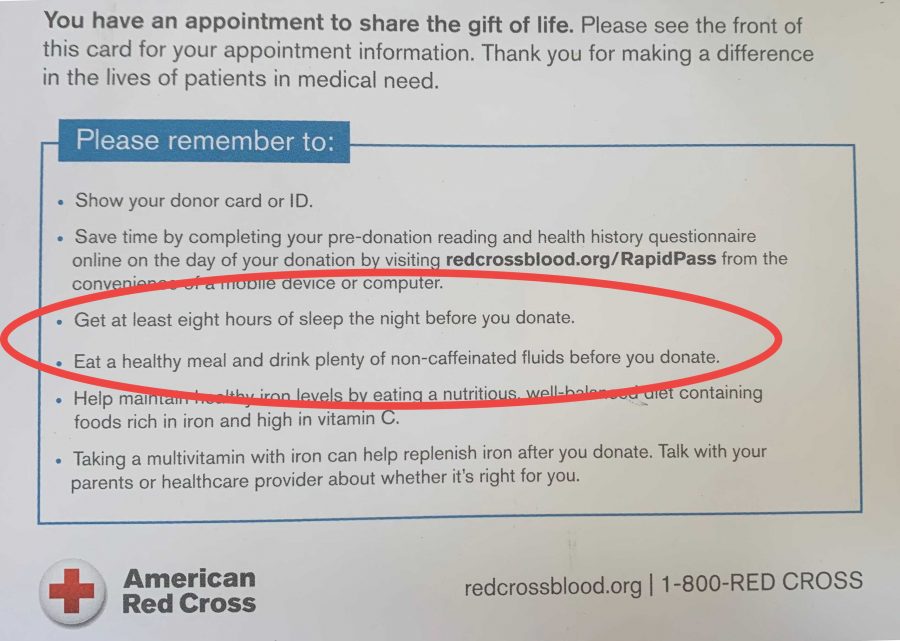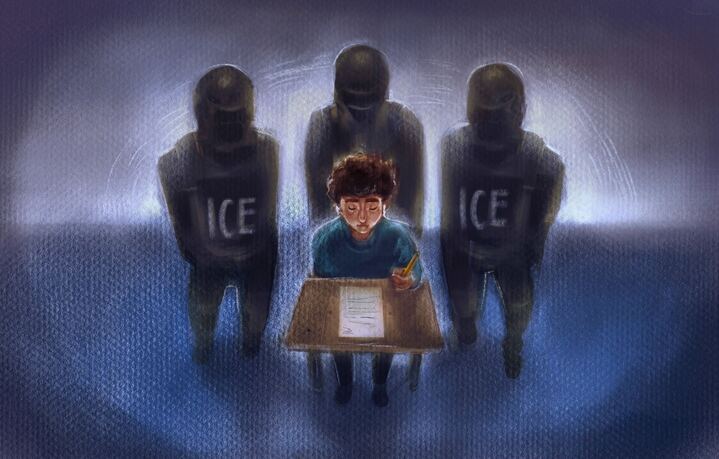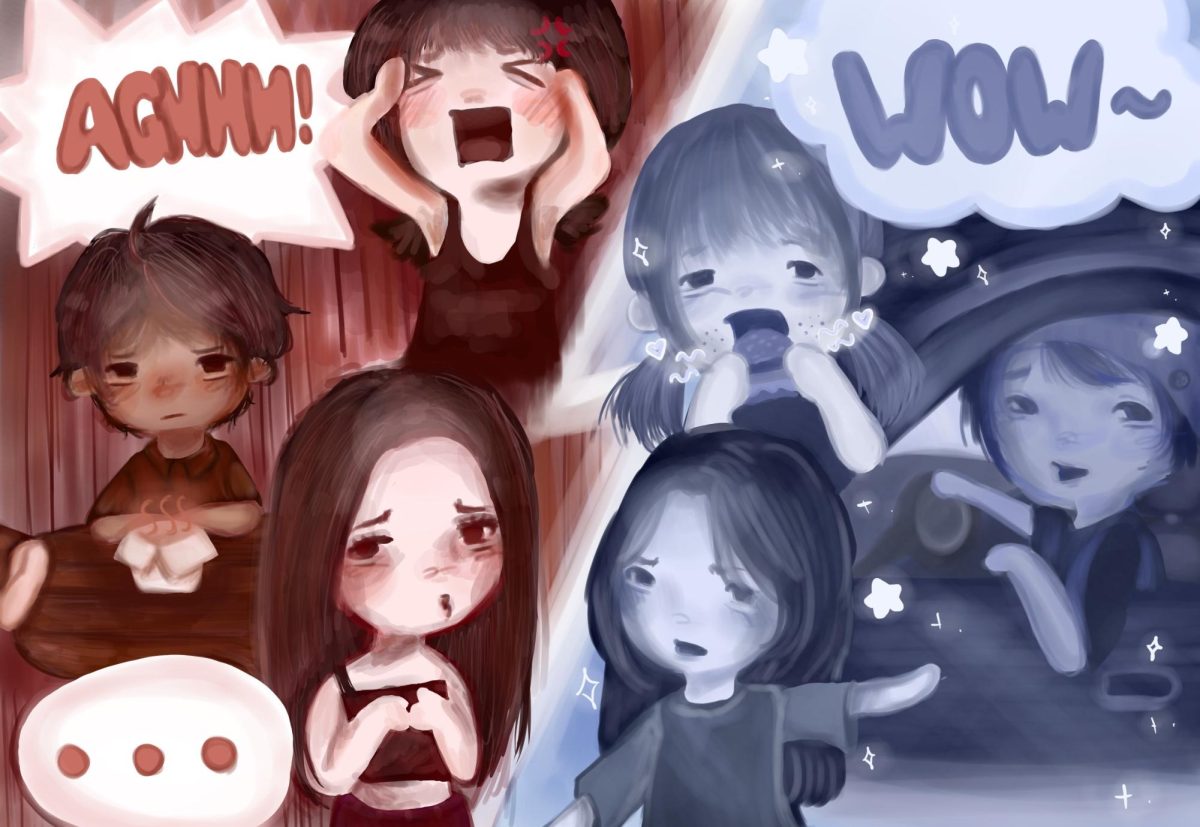It was a typical Wednesday morning for me — barely any sleep, having little to eat and heading straight to zero period. I had completely forgotten what was planned for the day.
I slept about two hours the night before, or technically morning, and I thought about my schedule during passing period heading into first.
OK, so I finished all my quizzes for the day and all my homework, but I feel like I’m missing something.
I brushed off the thought and headed into my first period Advanced Placement Environmental Science class.
As break came along, my friends and I talked about who was going to donate blood that day for the American Red Cross club’s blood drive.
Oh! That’s what I had forgotten!
Since this was the first time I ever offered to donate my blood, I felt pretty excited. I had signed up for being summoned out of my fourth period math class.
So during the middle of taking notes, I received a small, white slip of paper.
On the back, it had a list of things under the caption, “Please remember to,” but only two items stood out to me:
“Get at least eight hours of sleep the night before you donate” and “eat a healthy meal and drink plenty of non-caffeinated fluids before you donate.”
I laughed both recommendations off since I hadn’t accomplished either.
I mistakenly thought the blood drive was a casual thing without any thought about what toll it would put on my sleep-deprived and starved body.
Walking into the library, the first meal I had was a peanut butter and jelly sandwich and water — both of which were provided for blood donors.
I sat patiently in the waiting line talking with a few of my friends I bumped into.
Then, it was my turn.
My doctor had a kind face and told me not to worry. Honestly, the finger prick and preparation going into the transfusion were a breeze.
He led me to the beds, and I lied down staring straight at the dotted ceiling. To distract myself, I tried — to no avail — counting the little dots.
Covering my view of the needle sticking into my arm, the black band used to restrict blood flow squeezed tight on my upper arm.
From there I had to wait — painfully.
Though I couldn’t see anything, I could feel my arm pulsing and the needle through my arm. Even up to this point, I was feeling pretty OK. I had no doubt that I was going to be completely fine.
After the blood was drawn out for about 10-15 minutes, the doctors and volunteers told me to sit or lie down for a while on the gurney and then to move to the canteen.
First of all, I had no idea what this “canteen” was.
After two hours of waiting and getting my blood drawn, it was lunch, and I was definitely hungry.
Though I was feeling a little woozy, I rushed to eat with my friends, totally forgetting to ask about the canteen and going to grab my backpack at the back of the library instead.
Not a smart idea. My backpack felt heavier than usual — all the stuff I had to carry looked overwhelming — but I lifted my stuff anyway.
I thanked the people volunteering and working before heading out, and I greeted two friends outside; they were both American Red Cross members and volunteers.
While making small talk, my words started to slur, and I remember saying to my friends, “Wow, I feel so tired. Man, this backpack is so heavy.”
I set my stuff down after a girl next to me offered her chair for me to sit down, and as soon as my glutes touched the seat, my limbs collapsed like jello.
My two friends insisted that I go back inside, but I told them that I was too weak to move.
From there it got worse.
I started to lose my eyesight and hearing. Whenever I opened my eyes, all I saw was white. My hearing, on the other hand, was muffled, and I started to hear a high-pitched ringing.
At the time, I remember that my body ached, and I tried to make a joke about it in my head.
I joked about fainting this morning, but I really might — how ironic.
It felt like a movie scene — all sounds were mute except the ringing, and I could sense a lot of people surrounding me, trying to get me back to my senses.
I hadn’t fainted yet, but I clearly remember thinking of how tired I was. Sleeping two hours before a blood drive was probably not a good idea.
After that, I know I was lifted from the chair and laid down onto a stretcher-bed contraption. Two women on the blood drive staff placed cold, wet towels on my head and stomach, drenching my shirt.
My face turned completely white and I had fainted, later waking up to the two women who helped me.
One of the two women told me to open my eyes, and obviously, I told her I couldn’t see but after her insistence, I opened them.
According to www.dispatch.com, the average estimate by people surveyed was that 11.5 percent of donors faint and 27.3 percent experience dizziness or lightheadedness.
It was completely white, but blotches of color and shape started to become things and people that I could recognize.
I was given a brown bag to breathe into, which I thought would do nothing, but it actually helped me catch my breath. One woman told me to breathe into it about 25 times, and I watched the bag contract and expand as I breathed into it slowly.
I called my mom to pick me up, and I waited at the canteen; someone explained how it was the area set up next to the door where you eat after getting your blood drawn.
If I hadn’t been so eager to leave, I probably wouldn’t have fainted. But it wasn’t just that. Factors like food, sleep and stress contributed to my experience.
It was funny how quickly I bounced back, cracking jokes about what happened with the people remaining in the library and just making sure I didn’t make any sudden, make-me-faint-again movements.
Overall, I would donate my blood again. But with enough sleep and energy to do so. In fact, the part where they stuck the long needle in my arm was worse than the fainting, though the pain wasn’t too bad.
Of course, I would need to sleep, eat and keep myself in a less stressed mindset, but I would love to help out people who might potentially need blood if I have the opportunity to.
If you are planning to donate blood, don’t be like me.
It’s a great experience, fainting and all, but I wouldn’t undermine the recommendations to get enough rest the day before a blood transfusion.














